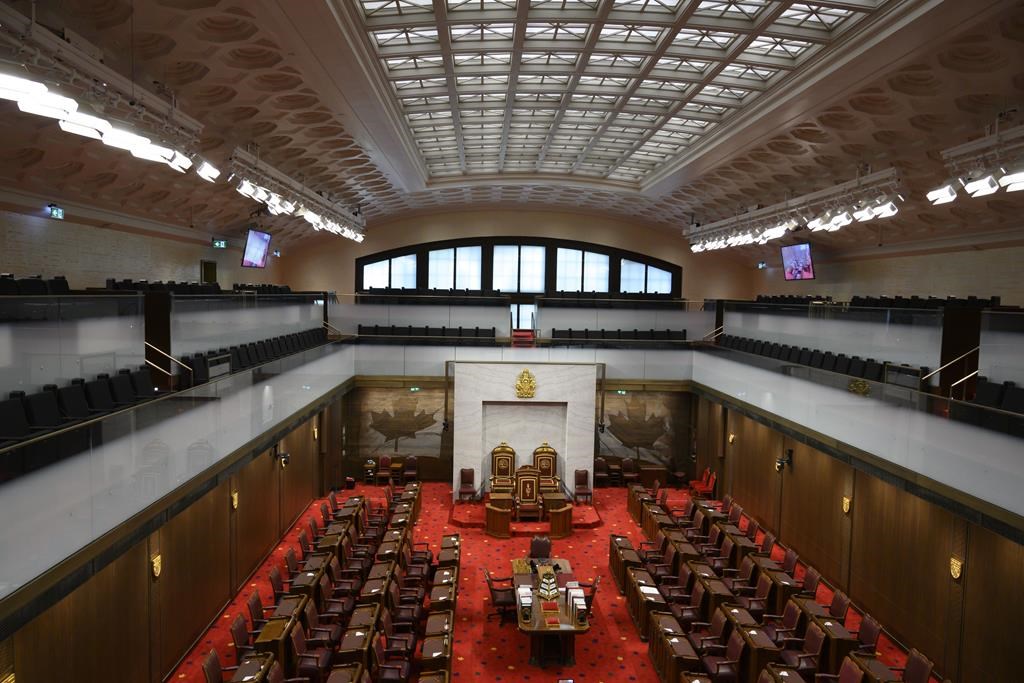An independent senator is on a mission to get members of Canada’s upper house to stop being so nasty to each other on social media.

Tony Dean says recent exchanges on Twitter involving senators and their staff have included “aggressive, harassing and, in some cases, bullying” behaviour.
Dean, a former head of the Ontario civil service, raised the issue during a Senate committee meeting last week. And in a subsequent interview, he said the intensity of harshly partisan comments increased markedly over the past few months.
READ MORE: Lynn Beyak suspended from Senate after refusing to remove racist letters from website

While free speech, the ability to communicate political messages, and the protections of parliamentary privilege are important to maintain, he said there should be reasonable limits on hurtful speech and conduct unbecoming a senator or the Senate as an institution.
“Those are not privileges that override the ability of people in our organization to do their work free of intimidation and harassment,” Dean said.
He has proposed that senators meet to discuss the issue and ask the Senate’s administration for guidance on whether current policies are sufficient and how to create new guidelines, if necessary.
Dean, who sits with the Independent Senators Group, said there were discussions during the development of the Senate’s new harassment policy to extend its reach to social media, but senators could not reach agreement on the issue.
When it comes to determining what online behaviour is hurtful, Dean draws a distinction between generalized comments aimed at group of senators or caucus and remarks that are personalized and attack specific senators or staff.
“I’m talking about something pointed at an individual that is purposely designed to undermine their stature, their credibility, their professionalism, and that imputes motives to them that are negative,” he said.
WATCH: How technology, social media can amplify bad behaviour

A new set of guidelines for online conduct could be tailored so that they encompass obvious, “bright line” instances of harassment or bullying, and leave out what amounts to passionate communication of political messages, he added.
Dean’s call for new guidelines came after exchanges on Twitter featuring both senators and staff were raised several times in the Senate chamber and in committees over the past few weeks.
During debate on June 6, for instance, Conservative Sen. Don Plett accused Independent Sen. Murray Sinclair of insulting him on Twitter by calling him misogynistic and antagonistic toward Indigenous Peoples.
That sparked input from Independent Sen. Paula Simons, who said Plett had retweeted a Twitter troll accusing her of taking payment for her vote on a bill that would ban oil tanker traffic off British Columbia’s northern coast. Plett subsequently apologized.
READ MORE: Senate votes to reject B.C. tanker ban bill report — now, the bill will proceed

During committee discussion on Dean’s call for new guidelines last week, Plett said he saw merit in the suggestion. Independent Sen. Sabi Marwah, the committee chair, said he would return to the group with a plan about how to best discuss the issue.
But Conservative Sen. David Tkachuk said his party caucus will police its own social media exchanges.
“We will govern our own communication. We will not be relying on the Senate to tell us how we communicate a political message,” he said.
Dean allowed “that was not a hopeful sign” but said he remains optimistic he can gain co-operation from other Conservatives.
He put the Conservatives’ reluctance to impose new guidelines down to the transformation of the Senate from a “partisan duopoly” of Liberal and Conservative members to one where a majority of senators are now independent or non-affiliated.
READ MORE: Six steps Canadians can take when they spot hate speech online
The disruption in the traditional partisan environment in the upper house has particularly affected Conservative senators — the last remaining unabashedly partisan group in the Senate — who are unsure how to treat others, Dean said.
Some Conservative senators have criticized the Independents as “Liberals in sheep’s clothing,” and Dean said that’s an understandable reaction to the sudden transformation over just four years.
“We tend to be on the receiving end of an old-style of political discourse,” he said.
“(Conservatives) are not inclined to adjust and change just because we arrived, and I completely understand that,” he added. “They would like to get things, I’ll put it this way, back to normal.”



Comments